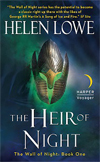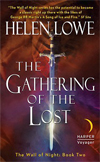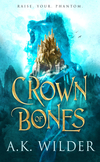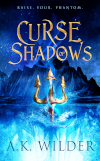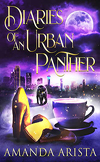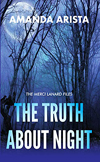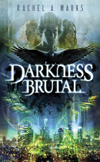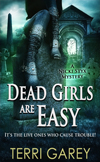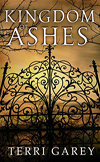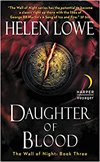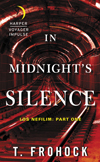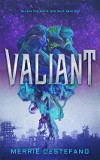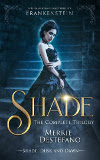 |
| Photo Credit— Roger Czerneda Photography |
And We Have a Winner — for Julie Czerneda's #AgainstTheDark Giveaway #1
Thank you to everyone who participated.
~~
Today, we're thrilled to welcome award-winning Canadian author, Julie E. Czerneda, to the Supernatural Underground.
Guest Post Goodness:
Julie is currently on a Blog Tour to celebrate publication of To Guard Against The Dark, the ninth and final novel in her very successful the Clan Chronicles series. Naturally we're delighted she's made the SU a stop in what is a very busy schedule.
Two Giveaways of Awesome!
Nine books is quite an achievement—plus promising hours of reading pleasure!—so Julie and her publisher, DAW, are celebrating with not one but TWO awesome giveaways. Details for both are following the post—and there's also more great information on Julie herself, and the series.
Right now, though, let's read-on because if you love insights into the writing life, you'll love this post!
—
So, When’s the Movie?
Yup. The go-to question from those who sincerely want to know if you’re any good. |
| Clan Chronicles #1 |
Which brings up a more—useful—question.
How do we know if we’re any good? Movie deals aside.*
Creative people are like that, you realize. Prone to wondering. Doubt. We can, of course, think we’re pretty good, which, if you’re Canadian too, comes wrapped up in our national twitch of: don’t tell anyone! But then the whisper in the mind starts…are we…really?
Meaning, like anyone else, we look outside ourselves. Fortunately, society does provide one easily understood mark of success: being paid for what you do, so you can do what you do without starving.
Most of the time. Talk to me about the 101 ways to prepare zucchini. Better yet, buy me lunch—not zucchini, however. (Honestly, authors/artists. We do appreciate food. It’s primal.)
 |
| Clan Chronicles #6 |
Whether published traditionally or via self-publishing, the number of books sold is the bottom-line. There’s more. Bestseller lists. Is your book in stores and warehouses? Airports? In catalogues. Other languages. Are you pirated online—which is a bizarre compliment until you start doing more math about starving. There’s as many ways to check your numbers as there are stars above, and, to be frank, to obsess over them is as helpful as arguing with our star as winter approaches your hemisphere.
 |
| Clan Chronicles #3 |
Nor, for me, are number of readers a useful measure of “am I any good.” The reasons a book may or may not catch these readers’ eyes and hearts and not those are beyond my control. We—my publisher, booksellers, and I—do our best, including tours like this, to put my books out there. (Though if you buy me a beer with that lunch, I’ll tell you my Walmart story of marketing woe.)
Don’t get me wrong. Sending my manuscript out into the world provided immense validation. I’d finished something, for starters. And finally someone read my stuff! Go ahead and gasp. I didn’t know any better. My first readers were the people, editors, who could decide to buy it or not.
To decide, if for their purposes, it was any good.
The emphasis is important because I’d one advantage. I was an editor myself and knew my story being bought, or not, wasn’t All About Me. (Except for the wee whine inside my head, but I ignored it, most of the time.)
My first book, A Thousand Words for Stranger, spend a few years with a trio of editors who did like it, very much, but their publisher didn’t. It whooshed in a day across the desk of another editor, at another publisher, who quite loved it, but had bought something similar that very day. See? For their purpose. Timing is all.
I was told, repeatedly, DAW was where I belonged.
Now the problem with not knowing if you are any good (at this writing thing) is that self-doubt—even rational-seeming caution—can deflect you into wasting time and effort. DAW published the authors I loved. Why would I try there? I wasn’t yet worthy! (Something I mentioned in an earlier post, so lesson maybe learned?)
Which in hindsight cost a decade of my time, since DAW, in the person of Hugo award-winning editor Sheila E. Gilbert, indeed thought I was good and why hadn’t I come to them first? Surely I’d noticed they liked what I liked.
It never ends, by the way. In moments of personal doubt I’ll email Sheila to ask is she SURE my latest book is good? and she provides a virtual pat on my head—or thump—because why wouldn’t it be? That’s our relationship.
While vastly reassuring before a book launch, this isn’t, however, how I answer the real question: am I any good?
 |
No, this isn’t how my yard
looks at present. Still fall here. |
Awards? Are very nice, believe me. (THE PRECIOUS!) As marks of achievement, they’re damned fine proof a story worked for a sufficient number of wonderfully motivated-to-vote individuals to be noticed. Thanks!
The problem with awards as a measure is they come after the work. After the hours, days, weeks, months, and sometimes years of work—work you do alone. You bake muffins, you know in under 30 minutes if they’re edible. See what I mean? Writers and other artists face an inescapable period of time during which only they can judge if they’re getting it right, or not, while they start “baking” the next long before they do.
What comes very close to a useful measure of “am I any good” are those readers who contact me, privately and while I’m mid-book, to tell me how much my writing has meant to them. Thank you. That’s—that’s remarkable and a treasure and yes, that’s almost all I need.
Almost.
As in not quite. To accomplish a steady word count, to stay deeply focused on the plot as I must be, to keep doing this? I can’t pause to seek external reassurance. There’s no time. No head space. And, to be frank, no point. I must have confidence in my abilities. In what I do.
 |
| Clan Chronicles #8 |
It’s an intimate, hard to share, even harder to admit to you feeling. (Remember, Canadian.)
A feeling. That’s all.
At some unpredictable moment I’ll be writing and it happens.
I’ll read over what I just wrote, sometimes through tears.
Because it’s good enough, for me.
~ Julie E. Czerneda
Footnote:
*The movie? As of now, I’ve no idea if or when any of my works will appear on screen, but I’d love to see it too. Thanks for asking.
—
.
About Julie E. Czerneda
For twenty years, Canadian author/ former biologist Julie E. Czerneda has shared her curiosity about living things through her science fiction, published by DAW Books, NY. Julie’s also written fantasy, the first installments of her Night’s Edge series (DAW) A Turn of Light and A Play of Shadow, winning consecutive Aurora Awards (Canada’s Hugo) for Best English Novel. Julie’s edited/co-edited sixteen anthologies of SF/F, two Aurora winners, the latest being SFWA’s 2017 Nebula Award Showcase. Next out will be an anthology of original stories set in her Clan Chronicles series: Tales from Plexis, out in 2018. Her new SF novel, finale to that series, To Guard Against the Dark, lands in stores October 2017. When not jumping between wonderful blogs, Julie’s at work on something very special: her highly anticipated new Esen novel, Search Image (Fall 2018). Visit www.czerneda.com for more..
—
.
 |
| Cover art by Matthew Stawicki |
About the "Clan Chronicles" Series
The Clan Chronicles is set in a far future where a mutual Trade Pact encourages peaceful commerce among a multitude of alien and Human worlds. The alien Clan, humanoid in appearance, have been living in secrecy and wealth on Human worlds, relying on their innate ability to move through the M’hir and bypass normal space. The Clan bred to increase that power, only to learn its terrible price: females who can’t help but kill prospective mates. Sira di Sarc is the first female of her kind facing that reality. With the help of a Human starship captain, Jason Morgan, himself a talented telepath, Sira must find a morally acceptable solution before it’s too late. But with the Clan exposed, her time is running out. The Stratification trilogy follows Sira’s ancestor, Aryl Sarc, and shows how their power first came to be as well as how the Clan came to live in the Trade Pact. The Trade Pact trilogy is the story of Sira and Morgan, and the trouble facing the Clan. Reunification concludes the series, answering these question at last. Who are the Clan?And what will be the fate of all?
—
.
Be In To Win with Two x #AgainstTheDark Giveaways!
Giveaway #1: (US & Canada Readers Only)
Win Julie's latest book, To Guard Against the Dark, in hardcover, plus a mass market of This Gulf of Time and Stars.i) How to Enter: Leave a comment with your details below. Entries will close at midnight on Friday 13 October (EST.)
ii) Notification: The draw will be made and the result posted here on Saturday 14 October. if the prize is not claimed by midnight Tuesday 17
October, it will be redrawn and renotified on Wednesday 18 October.
Note: All times are US EST.
iii) Terms: The books will be supplied by DAW.
.
Giveaway #2
This is a fabulous tour-wide opportunity to win all nine “Clan Chronicles” novels!To enter, click on the following link and follow the entry instructions there:
.
























